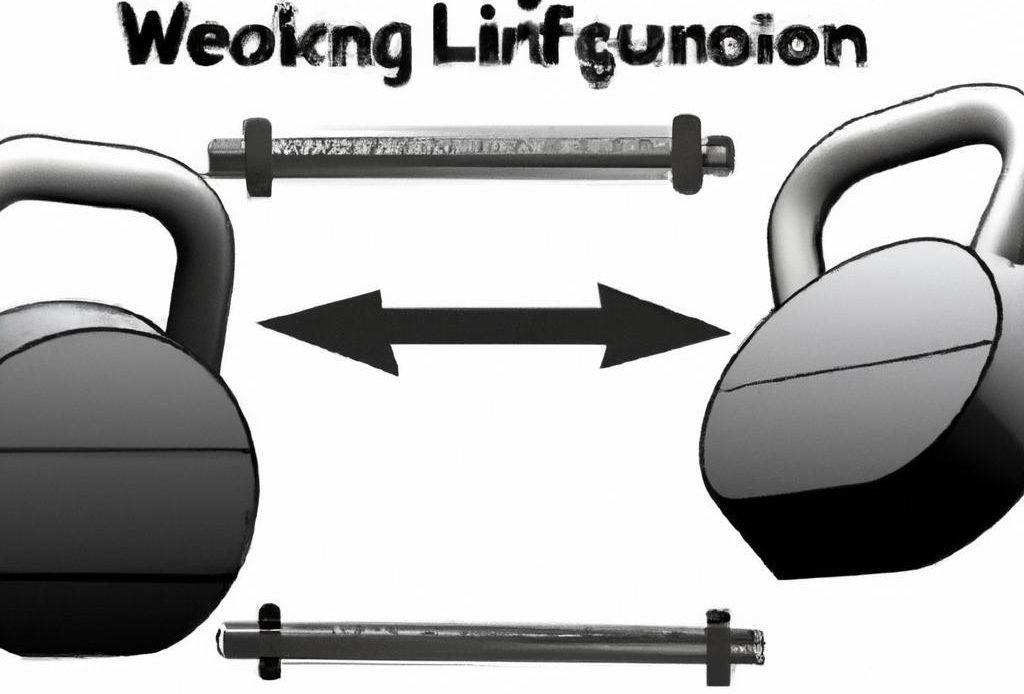
In a world where the pursuit of health often intertwines with endless trends and quick fixes, the age-old discipline of weight training stands as a steadfast pillar of physical empowerment. “Unlocking Strength: How Weight Training Empowers Muscle Growth and Metabolic Health” invites you to explore the transformative potential of resistance exercise—not just as a means to build muscle, but as a vital catalyst for enhancing metabolic function and overall well-being. Whether you’re a seasoned lifter or someone contemplating their first encounter with weights, this article delves into the science behind muscle growth, the intricate relationship between resistance training and metabolism, and the myriad benefits that extend far beyond the confines of the gym. Join us on a journey to uncover how this powerful practice can reshape your body, boost your confidence, and enrich your health from the inside out.
The Science Behind Muscle Growth and Its Impact on Metabolism
Understanding the biochemical processes that underpin muscle growth reveals fascinating insights about how our bodies adapt to resistance training. When we engage in weight training, we create microscopic tears in our muscle fibers. This damage initiates a process known as **muscle protein synthesis**, where the body repairs and reinforces tissue by adding new proteins. Key hormones such as **testosterone** and **growth hormone** play pivotal roles in this recovery phase, promoting an increase in muscle mass. This cumulative effect enhances the overall strength of the muscle, allowing us to lift heavier weights over time and contribute to progressive overload, a fundamental principle of resistance training.
As muscle mass increases, so does the efficiency of our metabolism. Muscle tissue is metabolically active, meaning it burns more calories at rest compared to fat tissue. This metabolic boost can lead to significant improvements in body composition and overall health. Consider these benefits:
- Enhanced basal metabolic rate (BMR): More muscle leads to a higher BMR, increasing daily calorie expenditure.
- Improved insulin sensitivity: Increased muscle mass helps regulate blood sugar levels, reducing the risk of type 2 diabetes.
- Boosted energy levels: Greater muscle mass often translates to better energy availability during physical activities.
The relationship between muscle growth and metabolism is cyclical; as we build muscle, our ability to burn fat improves, creating a positive feedback loop that encourages further strength gains and better health outcomes.

Effective Weight Training Techniques for Optimal Results
When engaging in weight training, it’s essential to incorporate a variety of techniques that not only challenge your muscles but also promote progressive overload. This principle involves gradually increasing the weights or resistance levels you use, allowing your body to adapt and grow stronger over time. Some effective methodologies to consider include:
- Compound Exercises: Movements that engage multiple muscle groups simultaneously, such as squats, deadlifts, and bench presses, are crucial for maximizing strength and efficiency.
- Split Training: Dividing your workout into specific muscle groups can help focus your efforts and allow for fuller recovery, ultimately enhancing muscle growth.
- Supersets: Pairing two exercises back-to-back, targeting opposing muscle groups, elevates your heart rate while promoting hypertrophy and endurance.
- Periodization: Varying your training volume and intensity over time can prevent plateaus and promote continuous improvement.
In addition to strategies, paying attention to form and tempo is paramount. The control during each repetition contributes significantly to muscle engagement. A recommended pace includes:
| Phase | Duration |
|---|---|
| Concentric (lifting) | 1-2 seconds |
| Pause (peak contraction) | 1 second |
| eccentric (lowering) | 3-4 seconds |
| Rest | 30-60 seconds |
This structured approach not only builds strength but also helps to refine technique, leading to better performance and reduced risk of injury. By combining these effective techniques, you’ll be well on your way to unlocking your full potential in the gym.

Building a Sustainable Routine: Incorporating Weight Training into Daily Life
Incorporating weight training into your daily life doesn’t have to feel overwhelming. Start small by integrating short sessions into your routine. Aim for just 20-30 minutes a day, focusing on compound movements that engage multiple muscle groups. Some effective exercises include:
- Squats: Great for working the legs and core.
- Deadlifts: Targets the back, glutes, and legs.
- Bench Press: Excellent for strengthening the chest and arms.
- Overhead Press: Builds shoulder and upper back muscles.
Establishing a consistent schedule will reinforce these healthy habits. Consider training at the same time each day, whether it’s first thing in the morning or after work. To help visualize your progress, keep a log of your workouts. Here’s a simple table format to track your improvement over time:
| Exercise | Week 1 (Reps) | Week 2 (Reps) | Week 3 (Reps) |
|---|---|---|---|
| Squats | 10 | 12 | 15 |
| Deadlifts | 8 | 10 | 12 |
| Bench Press | 10 | 11 | 13 |
| Overhead Press | 8 | 9 | 10 |
By focusing on attainable goals and gradually increasing your workload, you foster an environment conducive to steady improvement. As you build this sustainable routine, remember to listen to your body, allowing for recovery days to prevent burnout and injury. In turn, you will not only enhance your strength but also elevate your metabolic health, making your fitness journey more enjoyable and effective.
To Conclude
As we conclude our exploration of the dynamic relationship between weight training, muscle growth, and metabolic health, it’s clear that the act of lifting weights transcends mere physicality. It is a powerful key that unlocks not only the door to enhanced strength but also to a myriad of health benefits that promote a vibrant, active lifestyle.
Incorporating resistance training into your routine can be a transformative journey, empowering you to reclaim control over your body and well-being. Whether you’re a seasoned athlete or just beginning your fitness voyage, the insights we’ve shared serve as a reminder that every rep is a step towards building not just muscles, but also resilience and vitality.
Ultimately, the journey of weight training is as much about the mind as it is about the body. As we cultivate our strength, we also foster confidence, discipline, and an appreciation for the incredible capabilities of our physical selves. So, as you set your sights on your goals, remember that each weight you lift brings you closer to unlocking your fullest potential—both in the gym and beyond. Embrace this empowering pathway, and let the remarkable benefits of weight training resonate in every aspect of your life.

